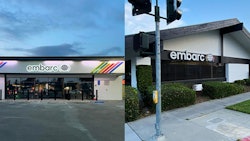Effective July 1, Assembly Bill 1894—the "Integrated cannabis vaporizer: packaging, labeling, advertisement, and marketing" bill passed by the California Legislature in 2022—will add “new requirements for the packaging, labeling, advertising, or marketing of cannabis cartridges and integrated cannabis vaporizers,” according to the California Department of Cannabis Control (DCC).
There are two parts to the new requirements, according to the DCC’s website:
- “Advertising and marketing materials for cannabis cartridges or integrated cannabis vaporizers are required to display specific messaging on how to properly dispose of a cannabis cartridge or an integrated cannabis vaporizer.
- Packaging and labeling of cannabis cartridges and integrated cannabis vaporizers can no longer include statements that indicate or imply that the items are disposable, may be thrown in the trash, or added to recycling streams.”
New Requirements for Advertising and Marketing
According to the DCC, licensees “must clearly display the following messages in a clear and legible fashion when advertising and marketing cannabis cartridges or integrated cannabis vaporizers”:
- Cannabis Cartridges: “A spent cannabis cartridge shall be properly disposed of as hazardous waste at a household hazardous waste facility or other approved facility.”
- Integrated Cannabis Vaporizers: “An empty integrated cannabis vaporizer shall be properly disposed of as hazardous waste at a household hazardous waste collection facility or other approved facility.”
New Requirements for Packaging and Labeling
“Licensees must not package or label cannabis cartridges or integrated cannabis vaporizers in a manner that indicates or implies that it is disposable, may be thrown in the trash or added to recycling streams,” per the DCC. However, there is no requirement to add any new language or messaging to the packaging or labels for cannabis cartridges or integrated cannabis vaporizers.
The DCC instructs licensees that have cannabis cartridges and integrated cannabis vaporizers that do not meet the packaging or labeling requirements of AB 1894 to “move the existing products through and out of the supply chain as quickly as possible.” The organization said it “plans to initially prioritize education and outreach to support increased compliance.”





















